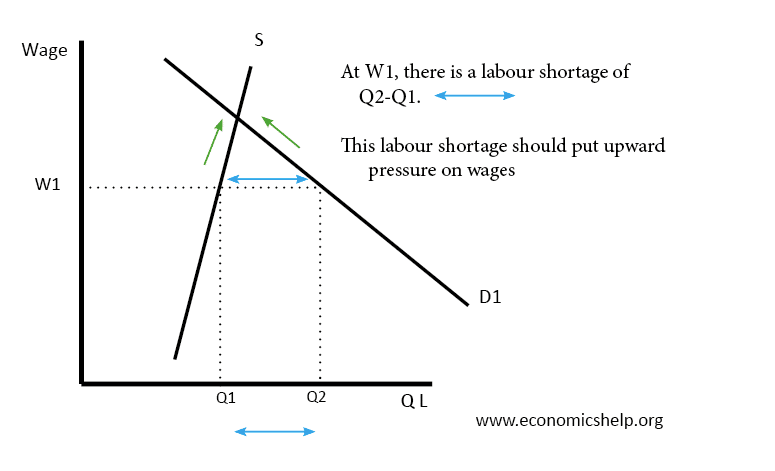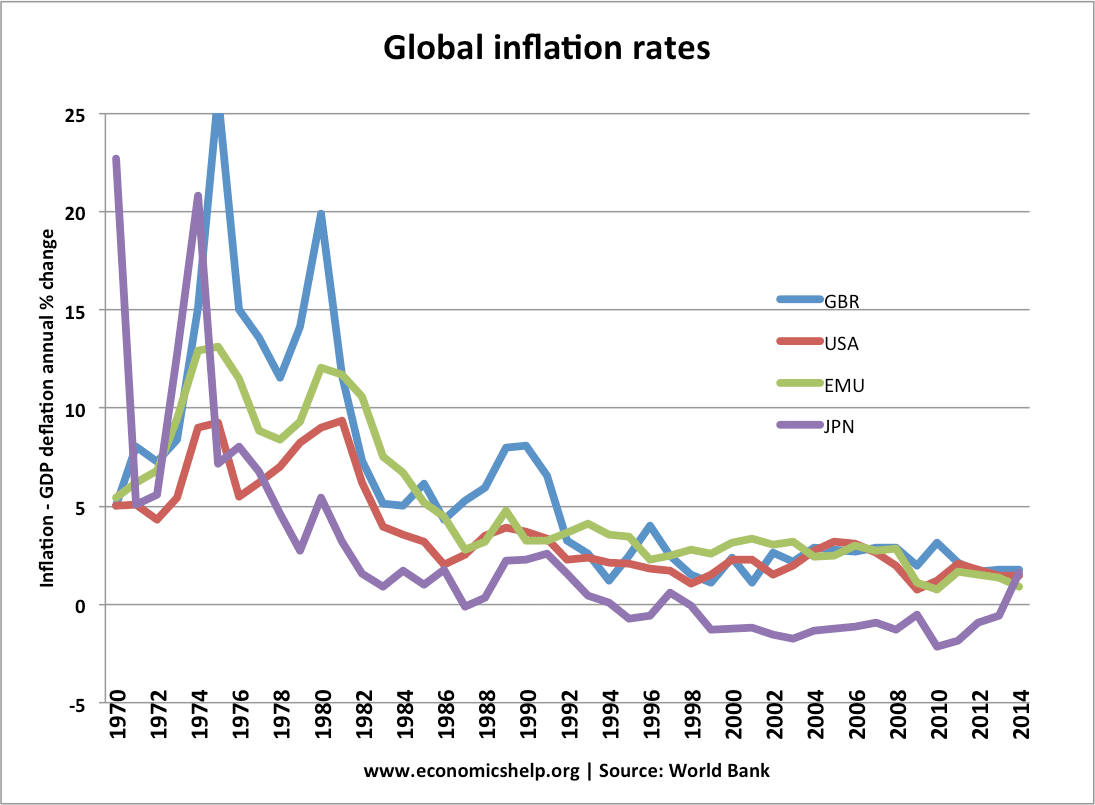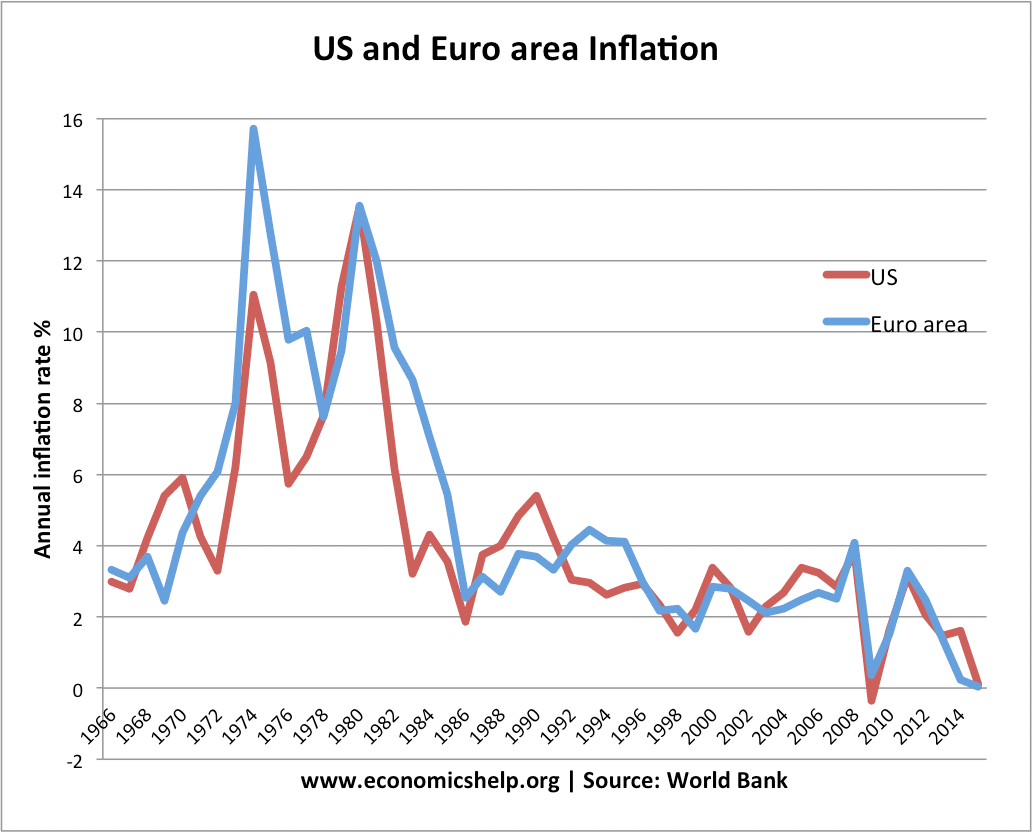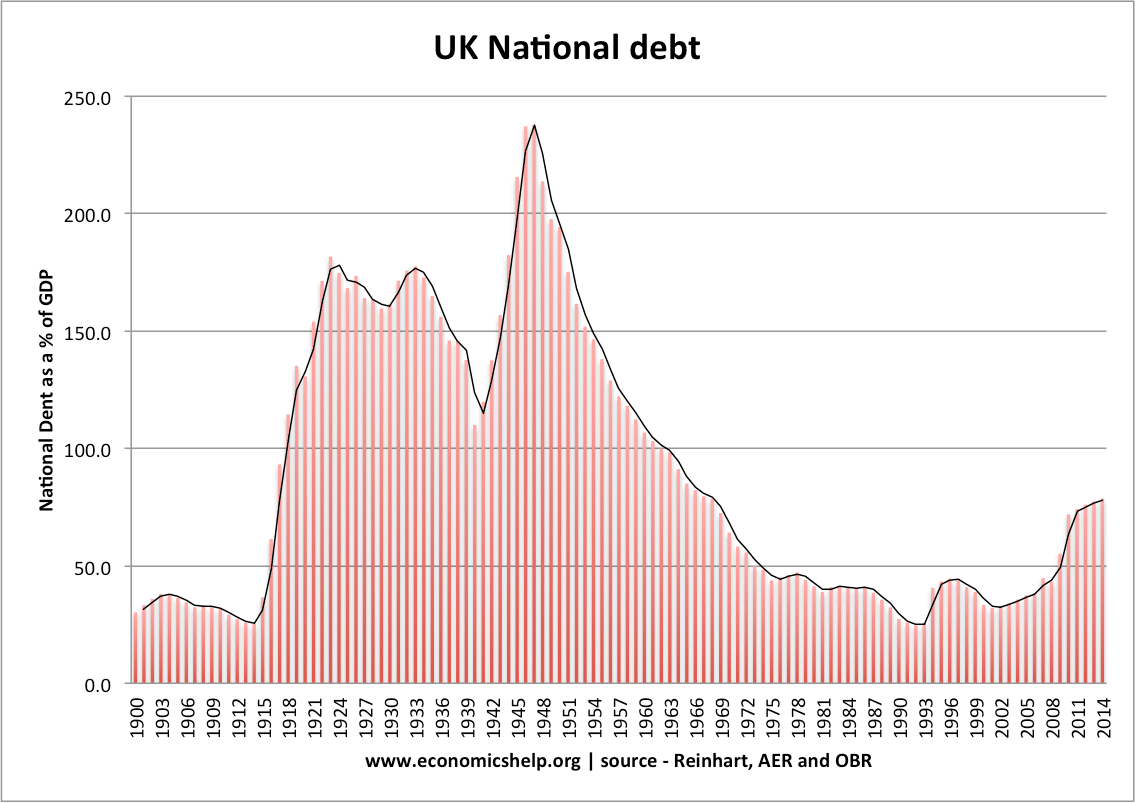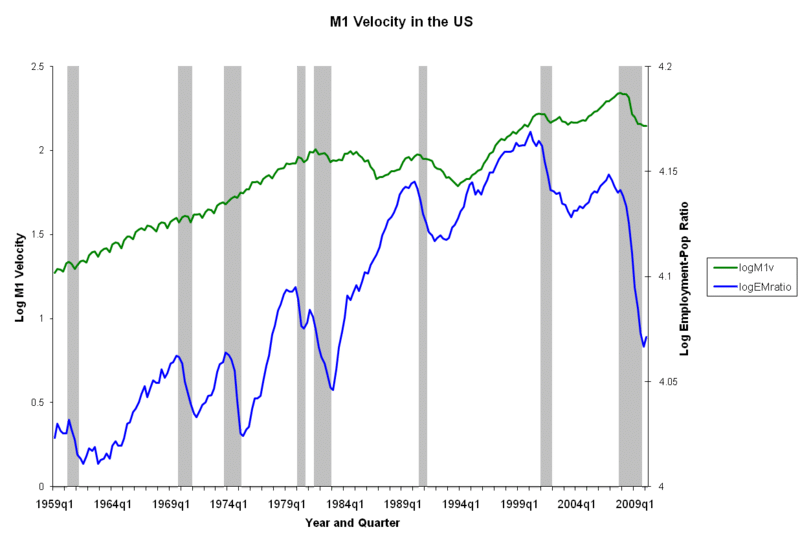Is zero inflation a good thing?
There are various economic costs associated with inflation – uncertainty, decline in investment, redistribution from savers to borrowers – but although there are costs with inflation, is zero inflation actually desirable? Governments usually set an inflation target of around 2%. (UK CPI target is 2% +/-1) There are reasons for targetting inflation of 2% – …

